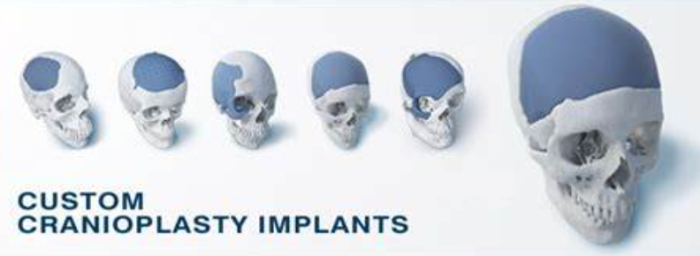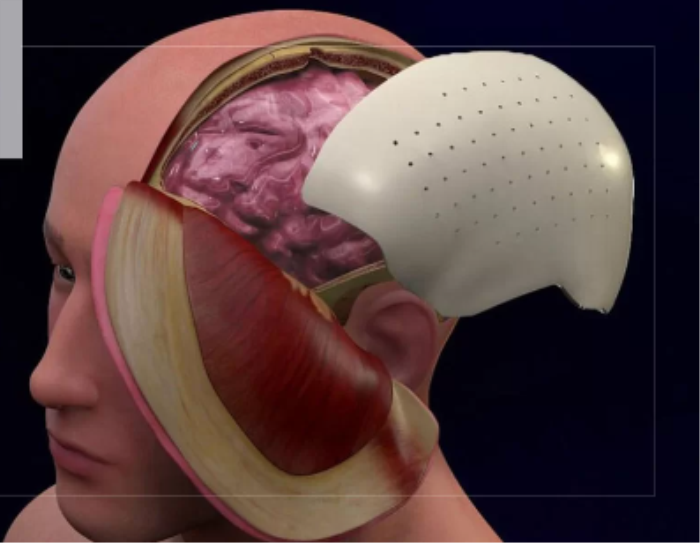Cranioplasty surgery in India provides state-of-the-art treatments and advanced surgical techniques for repairing cranial defects. With renowned hospitals and skilled neurosurgeons, India offers world-class care and cost-effective solutions for both domestic and international patients seeking effective cranioplasty surgery.
Medical disclaimer: This content is for general awareness and does not replace a doctor’s consultation. For diagnosis or treatment decisions, consult a qualified specialist.

Understanding Cranioplasty Surgery
What is Cranioplasty Surgery and How Does it Work?
Cranioplasty surgery is a medical procedure aimed at repairing defects or deformities in the skull, often caused by trauma, tumors, or congenital conditions. This surgery involves reconstructing the skull using various techniques and materials to restore normal skull shape and function.
During cranioplasty surgery, surgeons may use methods such as autologous bone grafts, synthetic materials, or custom implants to repair the cranial defect. The choice of technique depends on the specific condition and the patient's overall health. Advanced imaging and precise surgical tools help ensure successful outcomes and minimal recovery time.

When is Cranioplasty Surgery Necessary?
Cranioplasty surgery is necessary when there are significant cranial defects or deformities that affect the patient's appearance, brain protection, or neurological function. It aims to restore normal skull structure, protect the brain, and improve the patient's quality of life.
Different Types of Cranioplasty Surgeries
Different types of cranioplasty surgeries include autologous bone grafting, which uses the patient's own bone to repair the defect, and custom implants, which are pre-designed to fit the defect precisely. Each type addresses specific cranial issues to restore normal skull function and aesthetics.
The Cranioplasty Surgery Procedure
Pre-Surgery Evaluation Process
The pre-surgery evaluation process for cranioplasty involves a comprehensive assessment including medical history review, physical examinations, and advanced imaging techniques such as MRI or CT scans. This thorough evaluation helps determine the best surgical approach and ensures optimal outcomes.
Choosing the Right Type of Cranioplasty Surgery
Choosing the right type of cranioplasty surgery depends on the specific cranial defect, its severity, and the patient's overall health. Surgeons assess these factors along with imaging results to recommend the most effective surgical approach for optimal recovery and cosmetic results.
Detailed Surgical Procedure for Cranioplasty Surgery
The detailed surgical procedure for cranioplasty involves anesthesia, followed by making an incision to access the skull. Surgeons then repair the defect using the chosen method, such as placing an implant or graft. The procedure ends with closing the incision and monitoring the patient for recovery.
Post-Surgery Care and Recovery
Post-surgery care for cranioplasty includes pain management, monitoring for complications, and gradual return to normal activities. Patients should follow their surgeon’s rehabilitation plan and attend follow-up appointments to assess recovery and adjust treatments as needed.
Top Hospitals for Cranioplasty Surgery in India
Leading hospitals for cranioplasty surgery in India include AIIMS Delhi, Fortis Memorial Research Institute Gurgaon, Apollo Hospitals Chennai, Narayana Health Bengaluru, and Max Super Specialty Hospital Delhi. These institutions are known for their advanced cranial care and experienced neurosurgeons.
Success Rates and Survival Statistics for Cranioplasty Surgery in India
Success rates for cranioplasty surgery in India are high, with many hospitals reporting favorable outcomes. Most patients experience significant improvement in cranial aesthetics and brain protection. These positive results are attributed to advanced surgical techniques and skilled medical professionals.
Legal and Ethical Considerations for Cranioplasty Surgery in India
Legal and ethical considerations for cranioplasty surgery in India include ensuring informed consent, adhering to patient confidentiality, and complying with medical regulations. Hospitals must follow ethical practices, such as providing transparent information about risks and costs, and ensuring that all procedures are performed by qualified professionals.
Cost of Cranioplasty Surgery in India
The cost of cranioplasty surgery in India varies depending on the type of procedure and hospital, generally ranging from ₹2,50,000 to ₹7,00,000. Factors such as the complexity of the surgery and hospital facilities can influence the final cost, making India a cost-effective option for high-quality cranial care.
Explore a detailed breakdown of cranioplasty surgery cost in India by visiting our in-depth guide cranioplasty surgery cost in India.
Preparing for Cranioplasty Surgery
Lifestyle Changes Before Cranioplasty Surgery
Before cranioplasty surgery, lifestyle changes may include adopting a healthy diet, avoiding smoking, and managing chronic conditions. Patients should also follow pre-surgery guidelines provided by their healthcare team to optimize surgical outcomes.
Medications and Treatments Required for Cranioplasty Surgery Patients
Patients undergoing cranioplasty surgery typically require medications such as pain relievers, anti-inflammatory drugs, and antibiotics to manage pain, reduce inflammation, and prevent infections. Post-surgery, medications may also include muscle relaxants and blood thinners, along with physical therapy to aid recovery and enhance overall well-being.
Importance of Support Systems and Counseling for Cranioplasty Surgery Patients
Support systems and counseling are crucial for cranioplasty surgery patients, as they provide emotional support, help manage stress, and facilitate coping with recovery challenges. Having a strong support network and access to professional counseling can significantly enhance recovery and mental well-being.
Life After Cranioplasty Surgery
Recovery Process After Cranioplasty Surgery
The recovery process after cranioplasty surgery involves a combination of rest, gradual return to daily activities, and monitoring for any complications. Patients should adhere to their surgeon’s rehabilitation plan and attend follow-up appointments to track progress and make any necessary adjustments.

Long-term Care and Monitoring After Cranioplasty Surgery
Long-term care and monitoring after cranioplasty surgery include regular follow-up visits with healthcare providers to assess recovery, manage any ongoing symptoms, and ensure the long-term success of the surgical outcome. Patients should continue with prescribed care and lifestyle modifications as needed.
Potential Risks and Complications of Cranioplasty Surgery
Potential risks and complications of cranioplasty surgery include infection, bleeding, implant failure, and adverse reactions to anesthesia. Careful pre-surgery evaluation and post-operative monitoring help minimize these risks and address any complications effectively.
Latest Advancements in Cranioplasty Surgery
Minimally Invasive Techniques in Cranioplasty Surgery
Minimally invasive techniques in cranioplasty surgery use smaller incisions and advanced imaging to reduce tissue damage and recovery time. These techniques, such as endoscopic methods, offer benefits like less postoperative pain, shorter hospital stays, and quicker return to daily activities.
Use of Advanced Materials and Custom Implants
The use of advanced materials and custom implants in cranioplasty surgery focuses on improving durability, biocompatibility, and functionality. Modern implants, such as 3D-printed devices and high-strength materials, provide enhanced support and promote better outcomes, reducing the risk of complications.
Development of Innovative Surgical Techniques
The development of innovative surgical techniques in cranioplasty includes advancements such as robotic-assisted surgery and real-time imaging. These innovations enhance precision, reduce human error, and improve overall surgical outcomes, contributing to more successful and efficient procedures.
Frequently Asked Questions (FAQs) about Cranioplasty Surgery
What is the success rate of cranioplasty surgeries in India?
Success rates for cranioplasty surgeries in India are generally high, with many hospitals reporting favorable outcomes. Positive results are attributed to advanced surgical techniques and experienced medical professionals.
How long is the hospital stay after cranioplasty surgery?
The hospital stay after cranioplasty surgery typically ranges from 3 to 5 days, depending on the complexity of the procedure and the patient’s overall health. Some cases may require a longer stay for optimal recovery.
What is the cost of cranioplasty surgery in India?
The cost of cranioplasty surgery in India varies between ₹2.5 lakh and ₹7 lakh, depending on the type of procedure, hospital, and other factors. This cost-effectiveness is a key reason why many choose India for cranial care.
What are the eligibility criteria for cranioplasty surgery?
Eligibility for cranioplasty surgery depends on the specific cranial defect being treated, as well as the patient's overall health and medical history. A thorough pre-surgery evaluation helps determine if surgery is the appropriate option.
What is the recovery time after cranioplasty surgery?
Recovery time after cranioplasty surgery generally ranges from 6 to 12 weeks, depending on the procedure and individual patient factors. Adherence to post-surgery care and rehabilitation plays a crucial role in the recovery process.
What are the risks and complications associated with cranioplasty surgeries?
Potential risks and complications of cranioplasty surgery include infection, bleeding, implant failure, and adverse reactions to anesthesia. Careful pre-surgery evaluation and post-operative monitoring help manage and minimize these risks.
How do I find a suitable hospital for cranioplasty surgery in India?
To find a suitable hospital for cranioplasty surgery in India, consult with your doctor and research top hospitals known for their cranial care. Consider factors such as hospital reputation, surgeon experience, and patient reviews.
What kind of post-surgery care is required after cranioplasty surgery?
Post-surgery care typically involves medication for pain management, regular follow-up check-ups to monitor recovery, and physical therapy to aid in rehabilitation. Adhering to the care plan is crucial for optimal recovery.
Are cranioplasty surgeries covered by insurance in India?
Some insurance plans in India do cover cranioplasty surgeries, but coverage can vary based on the policy. It is advisable to check with your insurance provider for details regarding coverage and any potential out-of-pocket expenses.
Where can I find support groups for cranioplasty surgery patients in India?
Support groups for cranioplasty surgery patients in India can be found through hospitals, rehabilitation centers, and online communities. These groups offer valuable emotional support and information during the recovery process.
Discover the Best Neurosurgery Hospitals and Neurosurgeons in India
When it comes to brain and spine care, choosing the right hospital and specialist is essential. We�ve highlighted the top neurosurgery hospitals and neurosurgeons across India to ensure you receive the best care available.
Top Neurosurgery Hospitals in India
Find the leading centers for brain and spine care:
Best Neurosurgeons in India
Meet the top specialists in brain and spine surgery:
Get more indepth information on Neurology treatments and their costs.
Conclusion
Your brain and spine health deserve the best care. Explore the links above to learn more about the top neurosurgery hospitals and neurosurgeons in India.